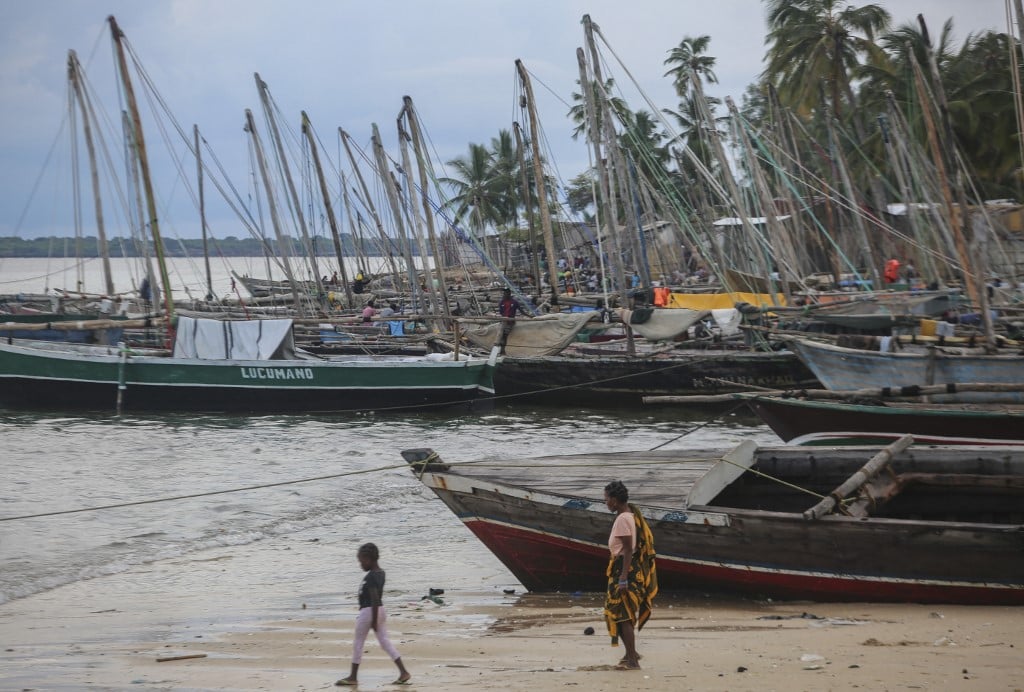Credit Suisse has agreed to pay almost $475m to resolve investigations into its role in Mozambique’s ‘tuna bond’ corruption scandal.
A $247.5m criminal fine will be paid to the US Justice Department, which will be reduced to $175.5m after completing payments to other authorities, Bloomberg reports.
The Swiss bank pleaded guilty to conspiracy to commit wire fraud and agreed to pay $100m to the US Securities and Exchange Commission and $200.6m to the UK’s Financial Conduct Authority. The banking giant will also forgive $200m of debt owed by Mozambique.
Credit Suisse bankers received $50m in hidden kickbacks for their role in a $2bn debt deal that was supposed to fund a fishing fleet and coast guard for Mozambique’s fishing industry, but the majority of the funds were spent on maritime defence. The kickbacks were part of at least $200 million in “improper payments” and bribes paid to Mozambican officials and bankers in the deal without management’s knowledge, the U.S. Justice Department said.
The secret loans became known one of the greatest corruption scandals of all time, while their discovery triggered a Mozambican currency collapse and sovereign debt default.
“Credit Suisse, through its subsidiary in the United Kingdom, engaged in a global criminal conspiracy to defraud investors,” U.S. Attorney Breon Peace said in the DOJ statement.
Credit Suisse has pledged to forgive $200m of Mozambique’s debt as part of the settlement with regulators and Swiss authorities, but there remains over $1.1bn of debt linked to the deal which is still disputed, says Dr Stephen Connelly from Warwick Law School.
“Credit Suisse’s acknowledgement that it has committed serious financial due diligence failings could undercut an argument under English law that it had no knowledge of the alleged fraud, that any tainted contract is binding and that the corruption is a risk that falls at Mozambique’s door. Mozambique can now strengthen any argument that Credit Suisse did know or ought to have known about the financial crime given the alleged due diligence failings, and that any tainted contract is voidable.
Mozambique was unwittingly sucked into a huge debt of which it had no knowledge before the scandal broke, Connelly adds.
“Corrupt officials and employees of Credit Suisse allegedly received kickbacks from a contractor in order that contracts be signed in Mozambique’s name, effectively leaving the people of Mozambique on the hook for money that never reached them.
“A Swiss bank and an African nation, but at the heart of this was that bank’s London branch and those who used and allegedly abused English law to force Mozambique to pick up the tab.”
A fishy deal
In September 2013, Credit Suisse raised $500m for a newly created state-owned tuna-fishing company called Empresa Mocambicana de Atum (EMATUM).
Given promises of a state guarantee and a handsome yield of 8.5%, the issue was oversubscribed and Russian bank VTB raised a further $350m. Though some had doubts all the money would end up paying for fishing boats, information given to investors suggested Mozambique had the potential to be a booming tuna hub.
Sources in Maputo, however, told African Business that a feasibility study grossly overestimated the country’s tuna potential. The bond was sold with estimates that Mozambique was currently catching 200,000 tonnes of tuna a year worth $200m. Yet the national fisheries office reported that in 2013, foreign and national vessels caught just 6,000 tonnes of tuna.
The same month the bond was issued, then-President Guebuza paid a visit to France-based ship building company, Constructions Mecaniques de Normandie (CMN), with French president François Hollande, sealing a multimillion-dollar deal. Under the agreement, CMN, which specialises in military vessels, would supply two dozen fishing boats and six patrol boats for about $220m, according to the French Foreign Trade Ministry.
But the order included three Ocean Eagle 43 trimaran boats that can launch unmanned drones and be equipped with artillery cannon and heavy calibre machine guns. Ship experts say the money spent on the boats is remarkably high.
In 2016, Maputo’s government agreed to swap the tuna bond’s outstanding $697 million for a sovereign Eurobond.
Additional reporting by David Thomas and Gillian Parker
Want to continue reading? Subscribe today.
You've read all your free articles for this month! Subscribe now to enjoy full access to our content.
Digital Monthly
£8.00 / month
Receive full unlimited access to our articles, opinions, podcasts and more.
Digital Yearly
£70.00 / year
Our best value offer - save £26 and gain access to all of our digital content for an entire year!
 Sign in with Google
Sign in with Google 



